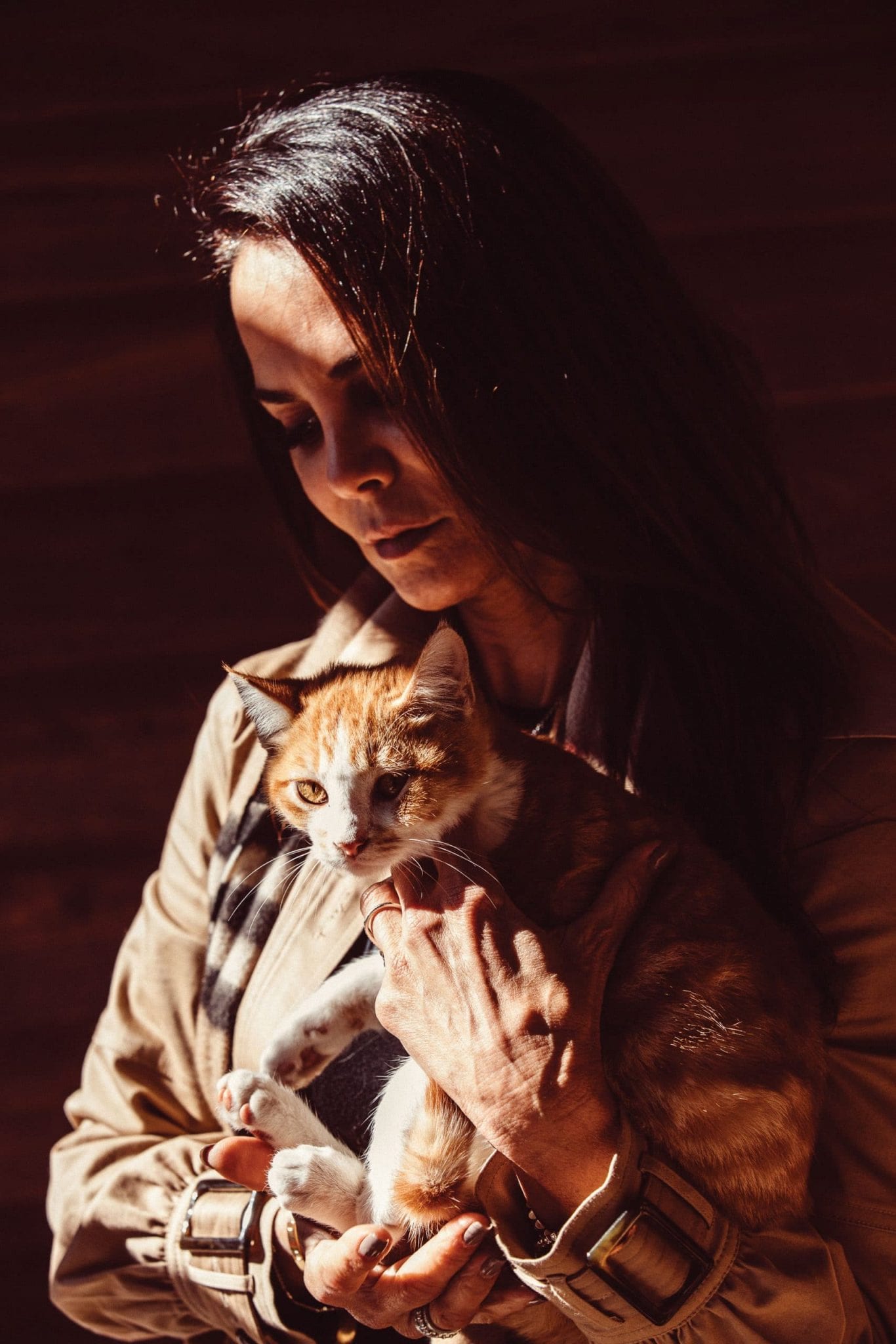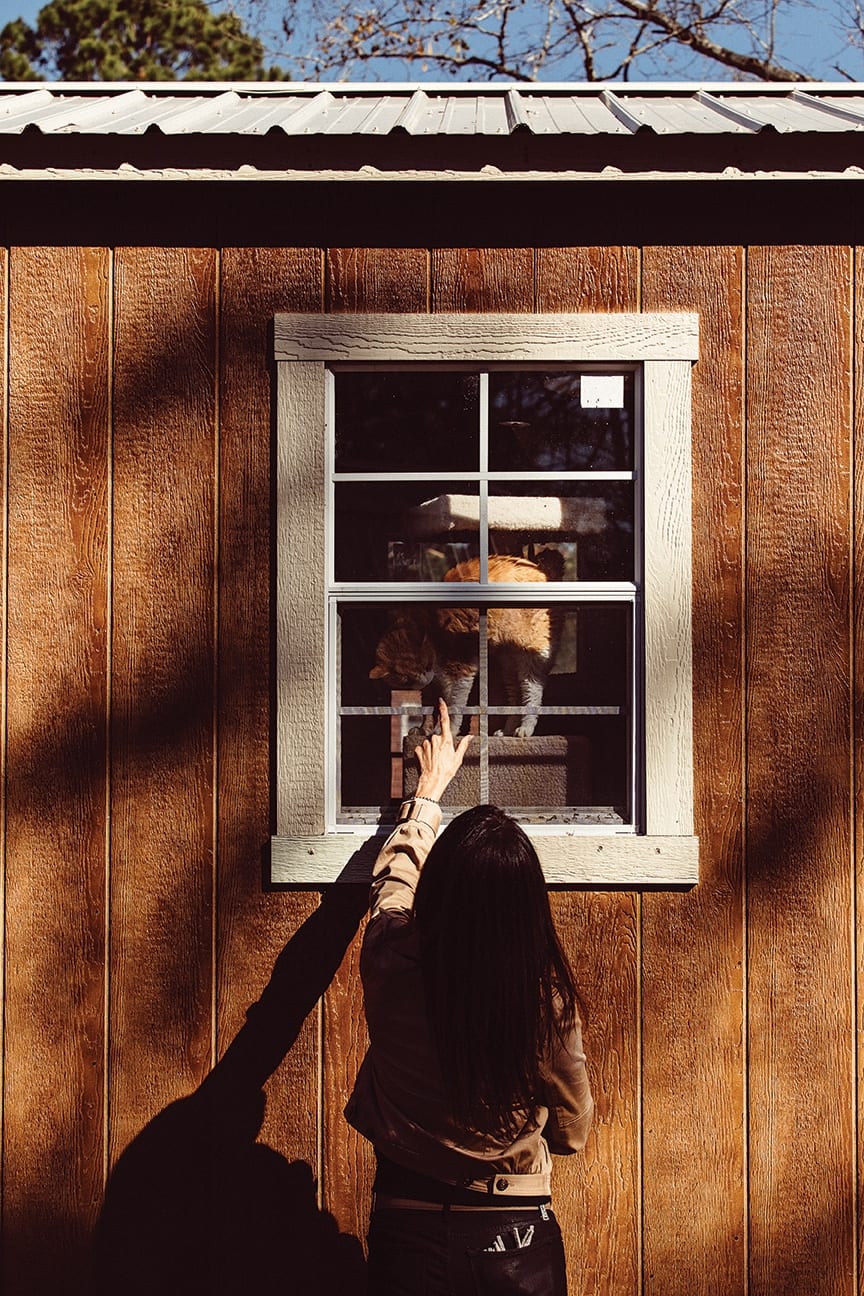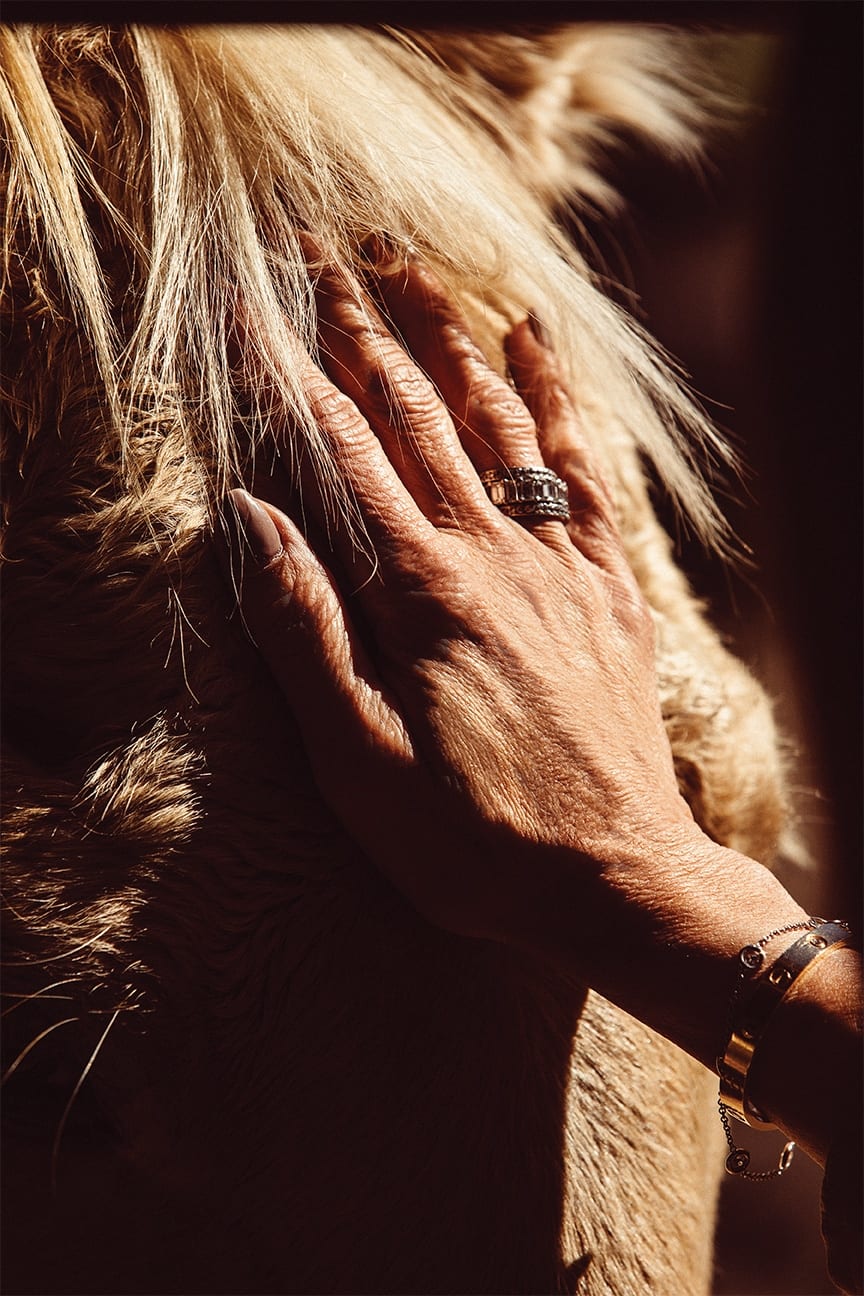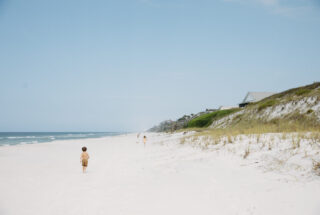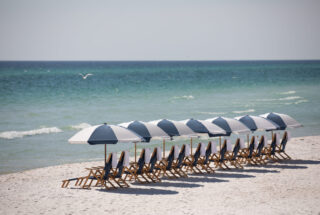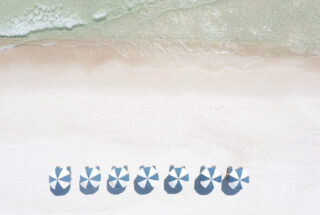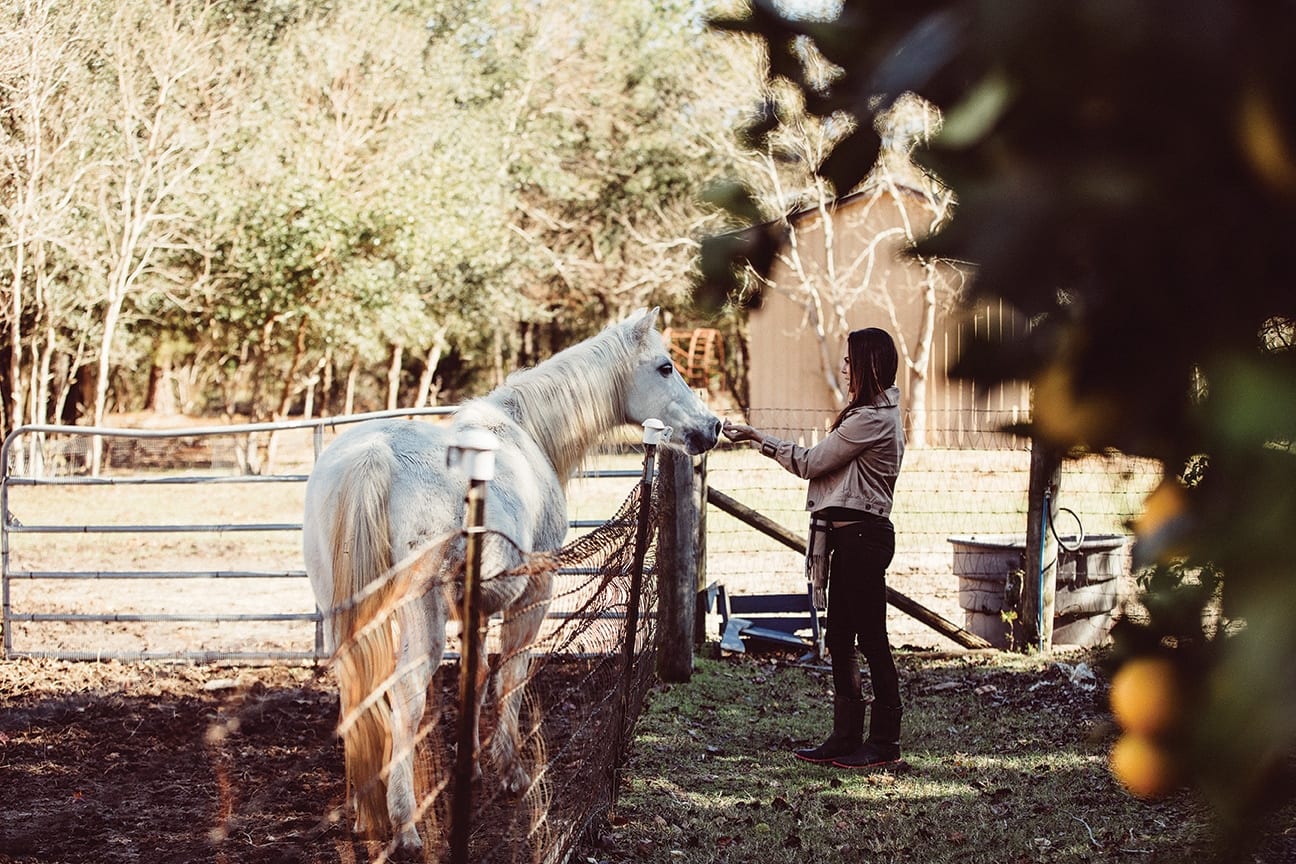

On 10 acres of idyllic farmland in Freeport, Fla., less than a half hour’s drive from Alys Beach, there is a sanctuary called Alaqua designed as a safe haven for animals ranging from cats, dogs, and rabbits to pigs, goats, horses, and birds, just to name a few. Here, animals who have suffered abuse or neglect find the love and critical care they need to recover.
Nina Freer first found out about Alaqua when she read on Facebook that the organization had recently rescued about 50 dogs from a hoarding situation. She put the word out to her neighbors at Alys Beach that Alaqua was in desperate need of extra dog food and supplies. The response was tremendous. Within a few days Nina was on her way to Alaqua with a truck full of pet food and other donations, which she delivered along with a check for $5,000 raised by the community.
While she was there, she met founder Laurie Hood, a woman who left a successful career in business to build Alaqua, a nonprofit, from the ground up.
“It was very inspiring to hear her story and Alaqua’s vision for our community,” she says. “Immediately it took my heart.”
Laurie says it started when she and her husband moved to Freeport in 2007, and she was dismayed to learn there was no real animal shelter anywhere within a seven-county area. “There was a 100 percent euthanasia rate for stray cats and dogs. I couldn’t believe it, and that’s what made me start the refuge,” she says. “Then almost immediately, people found out we were here and would offer scenarios and situations they'd seen or heard of. Just horrible things happening to all these animals,and there was nobody there to be their voice or protect them.”
That’s how Alaqua grew to include a wide variety of species, hiring veterinarians and other staff to care for them. They also recruited—mainly by word-of-mouth—a group of volunteers that now includes 400 who come regularly to help care for the animals and facility.
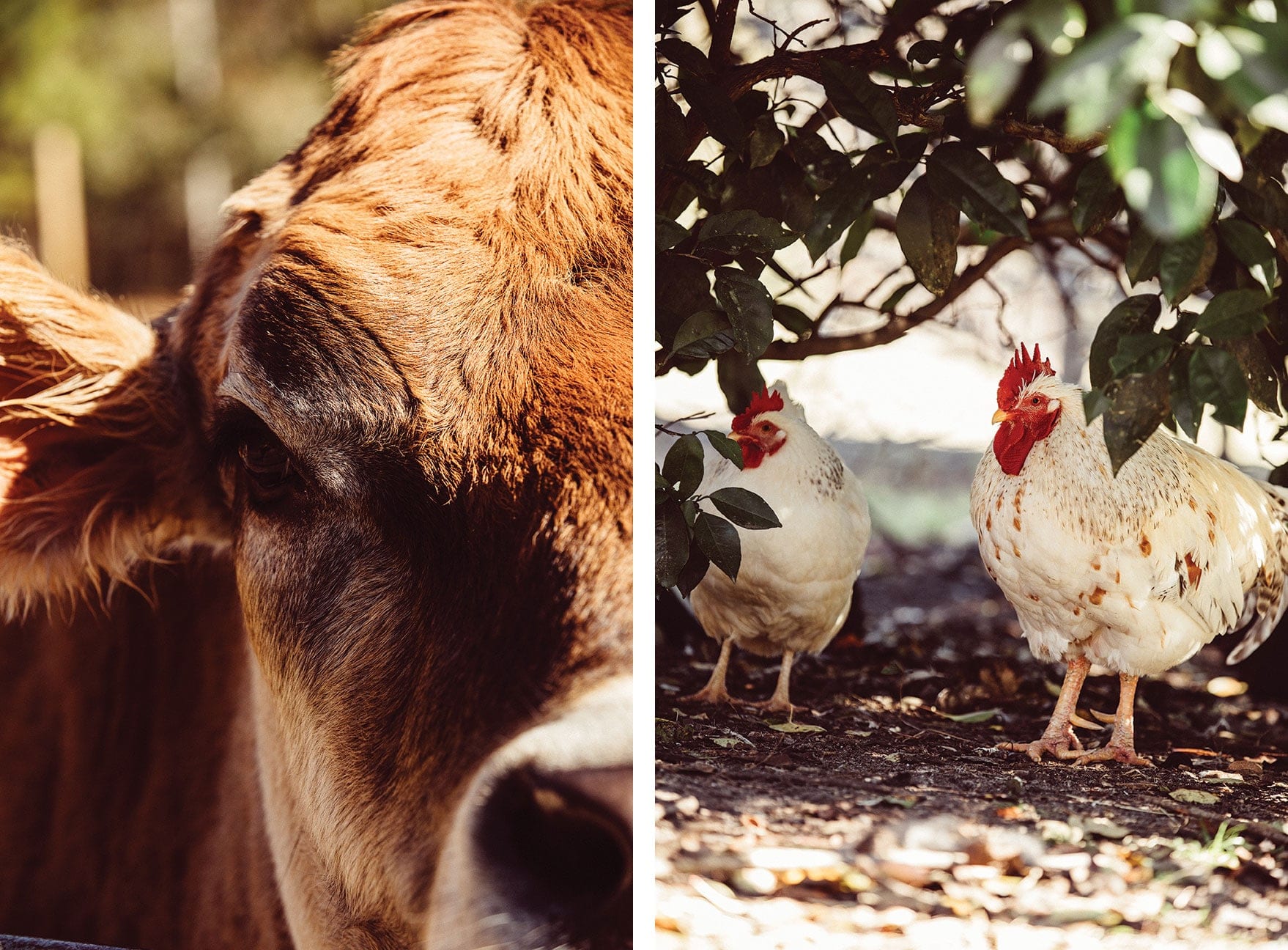

The day Nina came, she knew on the spot that she was all in. She continued raising money and was eventually asked to serve on the board of directors. But Nina wanted to help with the kind of gritty rescue work Alaqua does, too. Between the hoarding and animal-abuse cases, “we do some really gruesome work,” Laurie says. “When Nina wanted to come along, I didn’t envision her getting down and dirty, but oh my goodness, did she ever. She showed up with her rubber boots on and was wrangling filthy dogs…she was not scared. So early on I gained a great respect for Nina.”
Nina says few efforts she’s undertaken are more rewarding. “Going on calls with Laurie, I’ve gotten in the cages with fearful yet ferocious dogs who have been abused. Within a short period of time I have them lying in my lap. When they can trust people again, that’s how those animals get placed in new homes with a second chance. That’s what Alaqua does—they give all the animals a second chance.”
She also recalls a particularly memorable rescue effort she undertook solo on behalf of Alaqua. Nina had volunteered to go check on some local horses in the aftermath of Hurricane Michael; the horses were okay, but she also found a baby goat nearby, alone in a crate that had been partially crushed in the storm. “I swooped him up and took him home,” she remembers. “My husband was pretty surprised when he came home and found a goat in his bed.”
Walking her foster pet—whom she named Vincent Van Goat—around Alys gave Nina an idea. “I decided to do a ‘Goat Fund Me’ and raise money for some of the other goats that we ended up taking care of at Alaqua. Alys Beach graciously allowed me to have the fundraiser at Fonville Press. We prepared goat cheese appetizers and cheesecakes. Alaqua brought out some baby goats, and we created a wonderful theme. This little event raised $2,000 for Alaqua and the goats they care for.” (Vincent too had a happy ending, when Nina found him a new home on a sprawling farm in Macon, Ga.)
Nina continues to contribute to Alaqua in every way she can, and the organization depends on volunteers like her as it now embarks on the creation of a new, 100-acre, $15-million sanctuary that will include several new facets in line with its mission of rescuing animals, educating the community, and facilitating animal-human interaction that Laurie believes can be life changing.
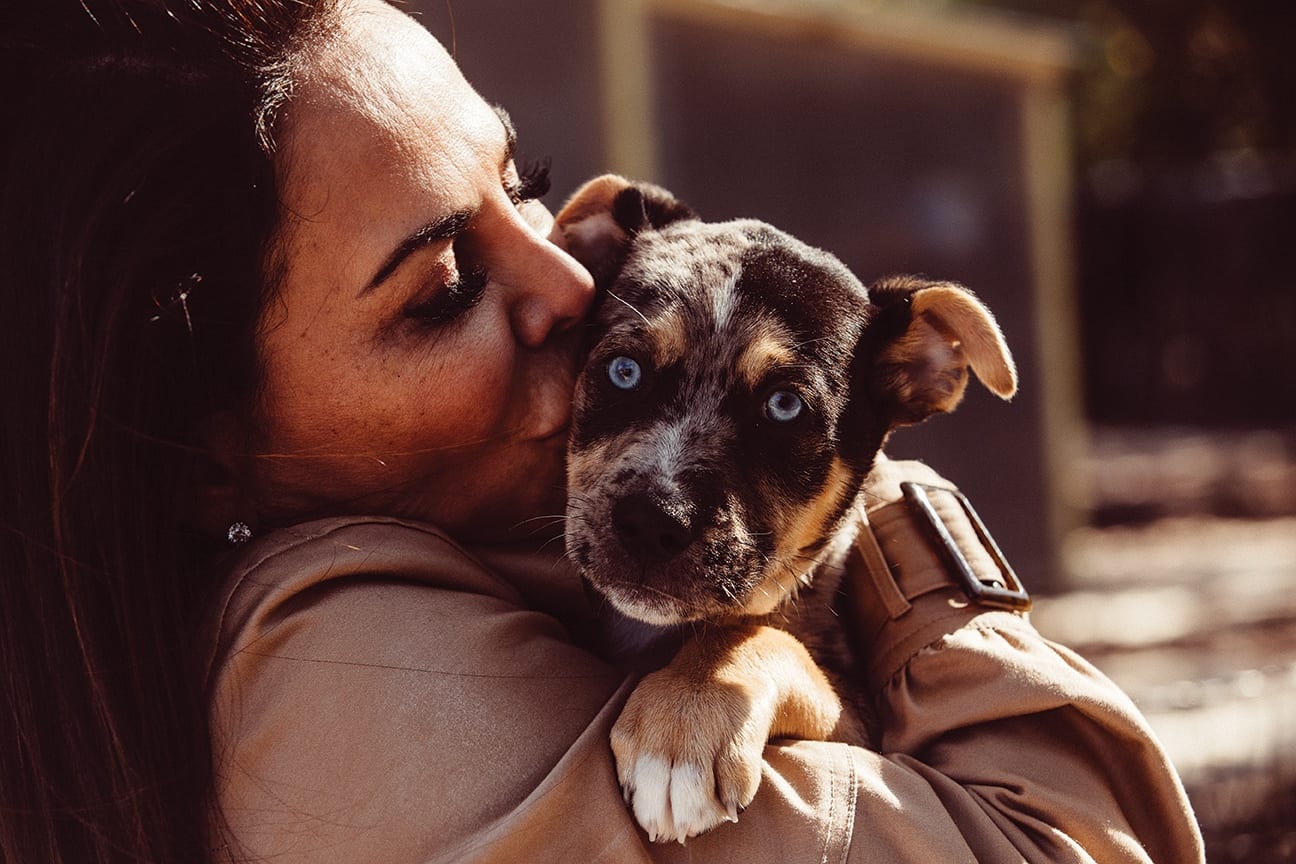

“We found out early on that people were coming out to volunteer because they have a love of animals, but it was clear to me that many needed some kind of spiritual or soul healing,” she says. “The animals we have on property help them do that.
“In developing the new space, we’re going to have places where people can come and have therapy sessions if they’ve lost a loved one, for example. We’re going to have yoga and meditation classes, and ways to walk through the woods with an animal and experience a full day of healing.” Alaqua already holds equine-assisted therapy for children with autism and other challenges and is working with a group to create the first equine-therapy program for sex-trafficking and PTSD victims. On top of these ambitions, Laurie and Alaqua are working towards becoming a species recovery center and educating the visitors who come to this area from all over the country about protecting endangered animals.
Nina is excited to help spread the word. “It’s a great thing to be involved with, and it’s great to see more people learning about Alaqua in our community,” she says. “I consider it a blessing to be a part of Alaqua as they have added so much to my life.”




